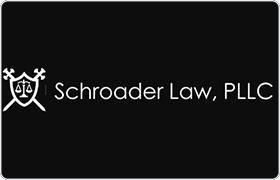Wilkeson Divorce & Family Law Lawyer, Washington
Sponsored Law Firm
-
 x
x

Click For More Info:
-
Schroader Law, PLLC
1105 Tacoma Ave S Tacoma, WA 98402» view mapDivorce & Family Law Exceptional Legal Service
Schroader Law, PLLC offers superior service from start to finish. Attorney Schroader is a knowledgeable lawyer offering comprehensive legal advice with realistic expectations.
800-916-9671
Steven W Crawford
Landlord-Tenant, Traffic, Estate Planning, Family Law
Status: In Good Standing Licensed: 31 Years
Dale Jay Holland
Landlord-Tenant, Estate Planning, Family Law, Personal Injury
Status: In Good Standing Licensed: 31 Years
Bradley Eugene Gearheard
Family Law, Civil Rights, Credit & Debt, Personal Injury
Status: In Good Standing Licensed: 34 Years
P. Gail Crawford
Federal, Estate Planning, Family Law, Criminal
Status: In Good Standing Licensed: 40 Years
David C. Corbett
Copyright, Estate Planning, Family Law, Elder Law
Status: In Good Standing Licensed: 15 Years
Evan Eugene Inslee
Estate Planning, Family Law, Contract, Personal Injury, Construction
Status: In Good Standing Licensed: 68 Years
Norma Lauryn Boston
Family Law, State Government, Indians & Native Populations, Environmental Law Other
Status: In Good Standing Licensed: 10 Years
 Dennis Schroader Tacoma, WA
Dennis Schroader Tacoma, WA Practice AreasExpertise
Practice AreasExpertise
